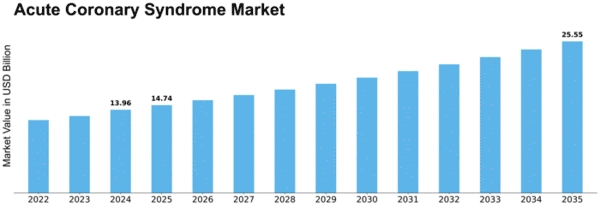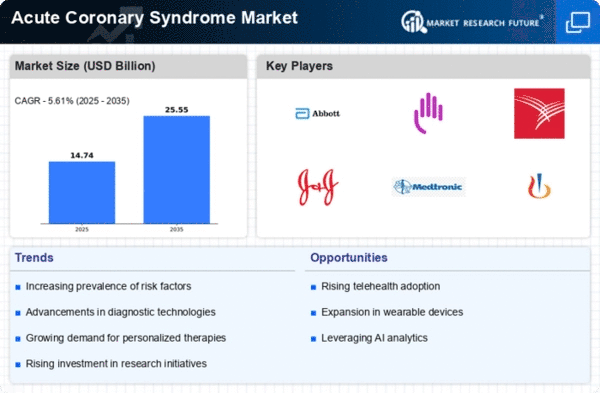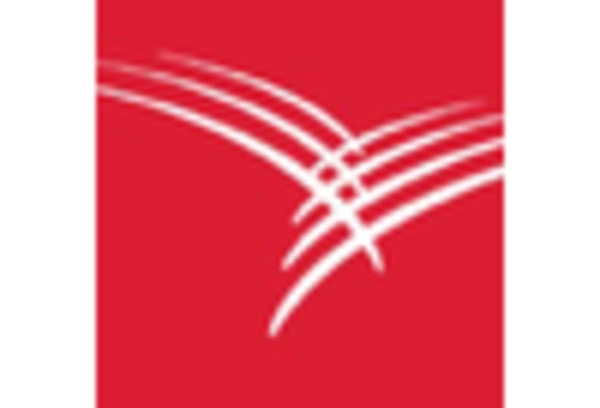Acute Coronary Syndrome Size
Acute Coronary Syndrome Market Growth Projections and Opportunities
Cardiovascular care has the Acute Coronary Syndrome (ACS) Market as its main constituency, a development that speaks to the family of conditions including unstable angina and myocardial infarction which is urgent and complex; however, ACS is marked with low blood supply in heart often due to a tear in arterial sclerosis resulting into chest pain or other potential cardiac impairments. In addition to this there are also diagnostic tools, treatment options and preventive measures that address immediate problems of ACS patients.
The ACS Market relies heavily on diagnostics whose role is to identify cases promptly and accurately. Troponin as well as electrocardiogram (ECG) and coronary angiography imaging techniques are central tools used for diagnosis purposes of ACS. Other advanced technologies available include computerized tomography angiography (CTA) and magnetic resonance imaging (MRI) among others assist in conducting a more detailed assessment of coronary artery aging process. Timorousness as well accuracy serve as essential concerns when it comes to the ACS because these factors determine urgency alongside appropriateness of therapeutic interventions.
The landscape of treatment within the ACS Market is highly dynamic due to varying presentations related with ACS. Early management requires aspirin, antiplatelet agents like clopidogrel, anticoagulants which minimize clot formation thereby reducing chances for further damage to the heart muscle. Revascularization procedures like percutaneous coronary intervention (PCI) or even coronary artery bypass grafting (CABG), are critical for re-establishing blood flow through the heart. In order to prevent recurring events or total cardiovascular health enhancement beta-blockers and statins act as pharmacological therapies that occupy major roles.
Advances in scientific research within this sphere have given rise to new approaches taken into consideration such as targeted therapy, precision medicine strategies; innovations in prevention plans are cautiously examined by clinical trials conducted at various levels worldwide today thereby contributing towards evolution of the health care system and the ACS Market. This has led to development of targeted therapies such as newer antiplatelet agents, anticoagulants etc., which are meant to improve treatment efficacy and minimize adverse events. The collaboration between pharmaceutical company’s research institutions and providers is vital for expanding our understanding on ACS, and better patient outcomes.
The biggest challenges within the ACS Market include addressing risk factors that can be modified in order to reduce the burden of coronary diseases or optimizing preventive strategies aimed at reducing occurrence of coronary disease (ACD) cases. These lifestyle changes involve adjustments in diet, exercise and smoking habits which help in preventing atherosclerotic plaques from developing. Also, public awareness campaigns that aim at educating people on ACS signs together with its symptoms lead to early recognition enabling timely medical intervention.
Progressions in cardiac rehabilitation programs have also influenced the ACS Market including secondary prevention techniques adopted by many countries worldwide today. Comprehensive cardiac rehabilitation includes guidance regarding daily routines, risk factor management as well as exercise training geared towards improving cardiovascular health and preventing recurrent events. This phase also entails novel interventions like telemedicine procedures, remote monitoring which form part of ongoing care as well as support given to individuals’ following their experience with an Acute Coronary Syndrome case (ACS).



















Leave a Comment